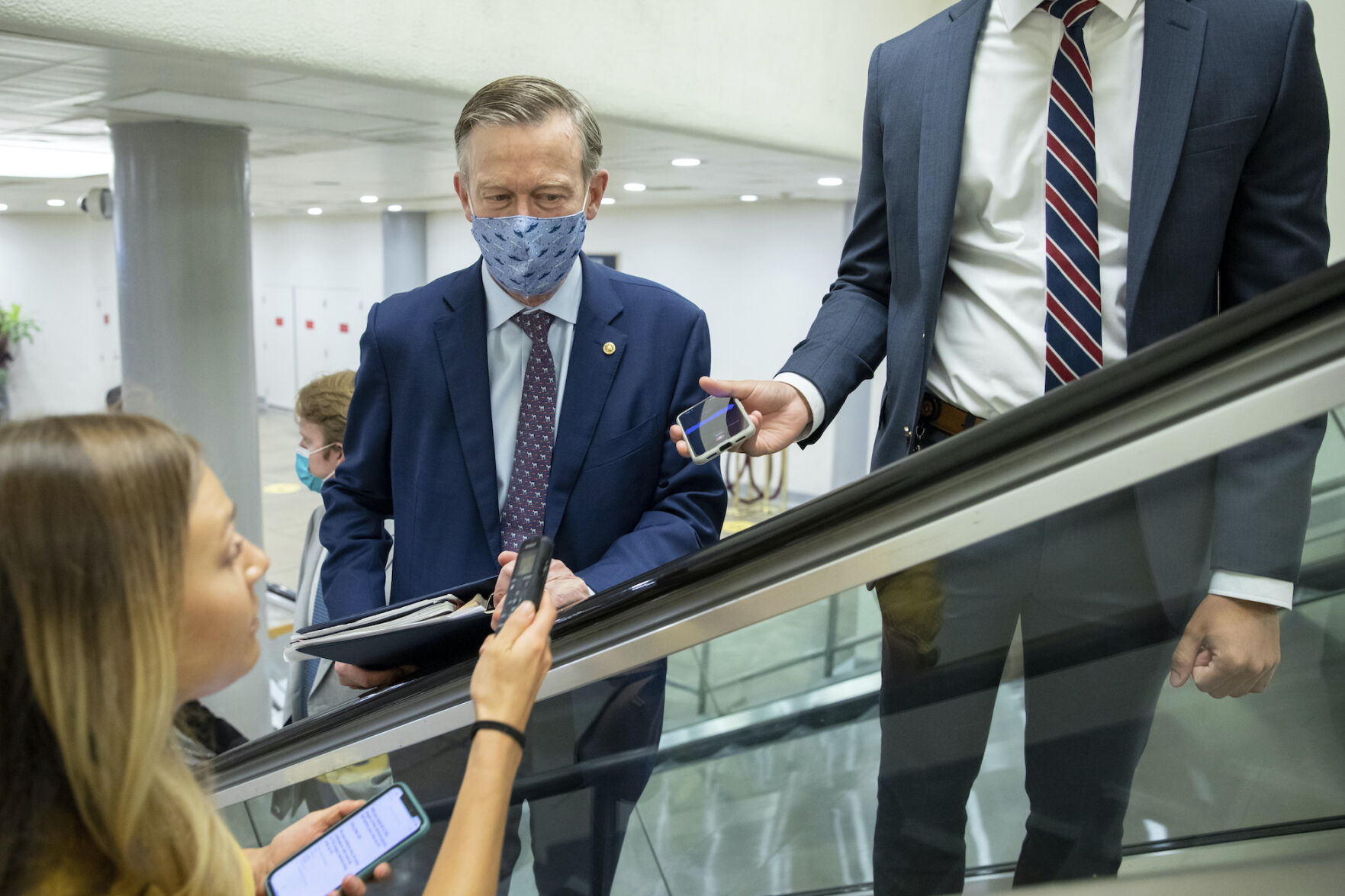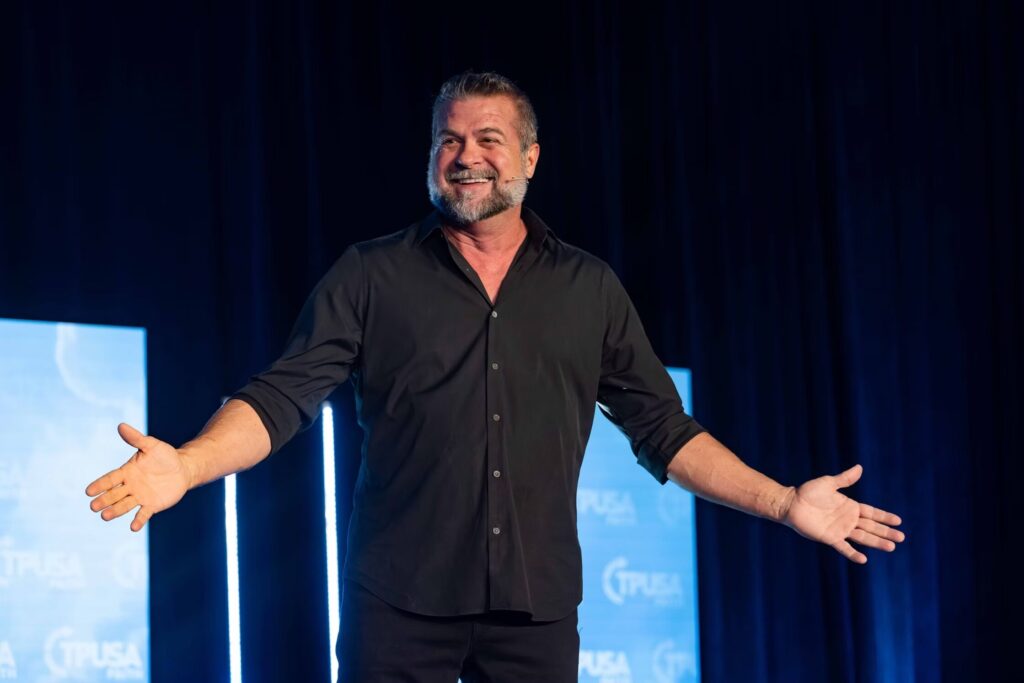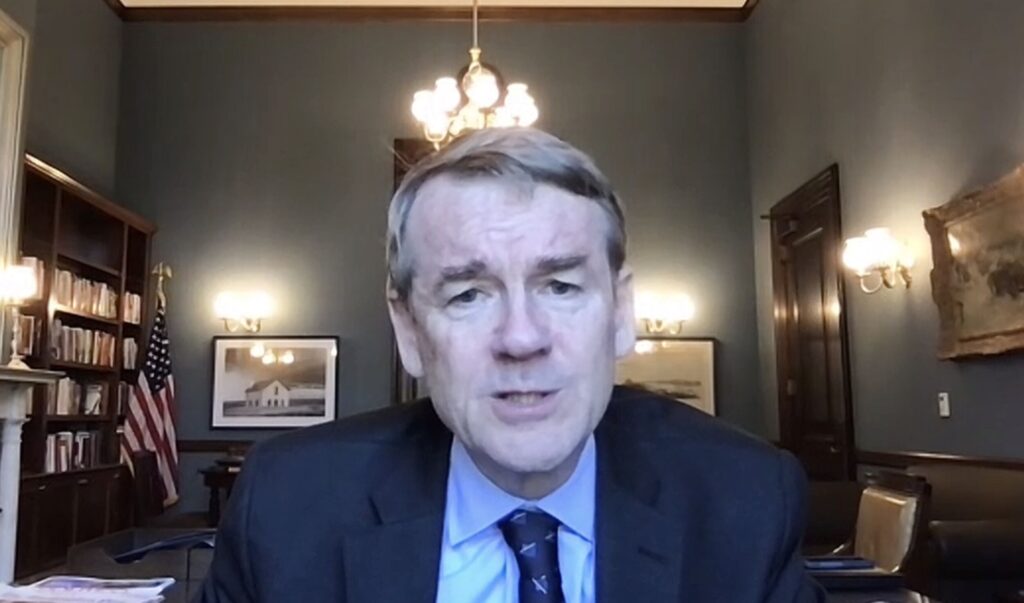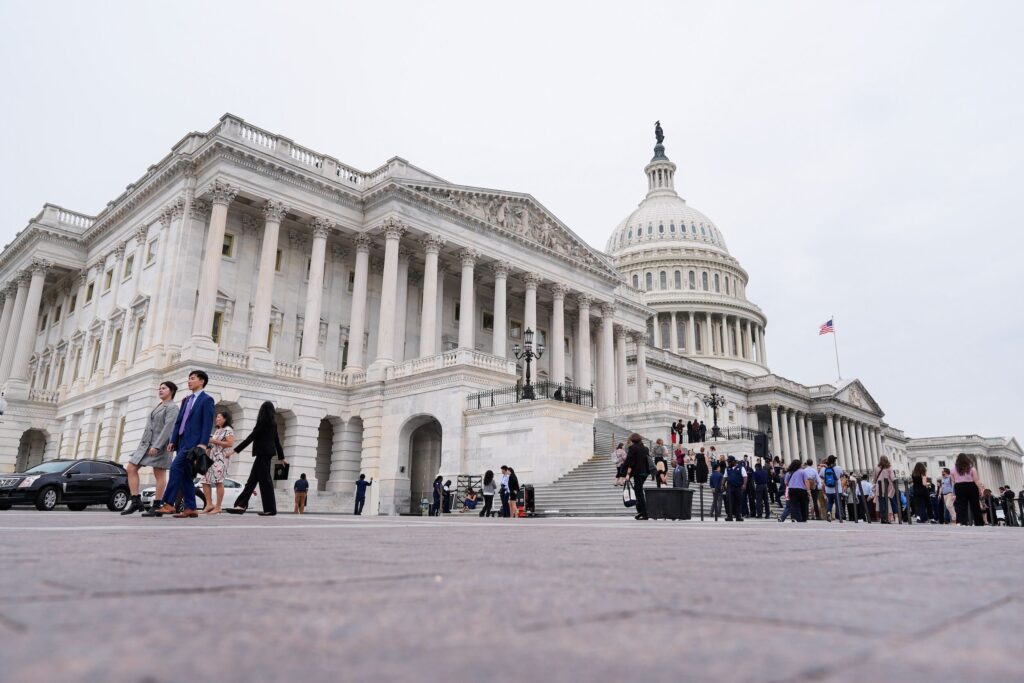Hickenlooper, Bennet cheer Senate passage of $1 trillion infrastructure bill

Colorado’s two Democratic senators applauded a Senate vote Tuesday to pass a roughly $1 trillion infrastructure bill, hailing the bipartisan legislation as a “historic investment” with massive benefits for the state and proof that lawmakers can get things done in a sharply divided Washington.
The Infrastructure Investment and Jobs Act passed 69-30, with every Democrat and 19 Republicans supporting the measure, which includes about $550 billion in new spending on roads, bridges, rail, broadband, airports, water projects and electrical systems. The bill now heads to the House.
“Today the Senate is kickstarting the economy by making the largest investment in our infrastructure in a century,” said U.S. Sen. John Hickenlooper, who was among a group of moderate senators who negotiated the bill.
“We’re proving to the world that our democracy can still deliver,” Hickenlooper said. “Coloradans will see better roads, faster internet, and cleaner energy thanks to our bipartisan collaboration.”
U.S. Sen. Michael Bennet praised the bill and what it represents.
“Over the last several years, the American people have lost faith in the Senate’s ability to come together and accomplish anything meaningful for them,” Bennet said in a statement. “Today, for the first time in a long time, we made a historic investment to build 21st century infrastructure and create good-paying jobs.”
Pointing toward an even larger, $3.5 trillion package proposed by the Biden administration and so far supported only by Democrats, Bennet suggested that he’s ready for more.
“But we need to do more to invest in the Colorado families, workers and kids that traditionally have been an afterthought in Washington,” he said. “We have a once-in-a-lifetime opportunity to build an economy that works for everyone and address our biggest challenges, like economic inequality, the threat of climate change and a rising China.”
The Senate began considering a budget resolution that could pave the way for the larger spending package following Tuesday’s vote. Under the proposal, the legislation wouldn’t need any Republican votes, though it’s unclear if key centrist senators are entirely on board yet. Debate over that bill is expected to last into the fall.
In the meantime, Hickenlooper and Bennet highlighted the funds Colorado could receive if the infrastructure bill makes its way to President Joe Biden’s desk.
According to White House estimates, the state stands to receive $3.7 billion for highway projects, $225 million to fix and replace bridges, at least $100 million to expand broadband coverage, $917 million from public transportation and $57 million to expand the state’s electric vehicle charging network.
Bennet, who presided over the Senate Monday as the bill cleared final procedural hurdles, touted elements of the package he helped craft.
“A number of my climate resilience and clean energy provisions are included in the infrastructure package we’re working to pass,” Bennet tweeted late Monday. “Climate change is an ongoing threat and needs to be mitigated by smart infrastructure investments.”
Republican U.S. Rep. Lauren Boebert of Silt has been attacking the bill on social media. On Monday, she tweeted: “Editing the Green New Deal and calling it an infrastructure bill is one of the bigger scams pulled in the 8 months I’ve been in Congress. The American people see all of this & they’ve had enough. I represent the people & am leading the opposition against the Green New Deal Lite.”
Another Republican member of the state’s House delegation, U.S. Rep. Ken Buck of Windsor, slammed the bill after the Senate vote.
“This is a bad bill. It increases the national debt, puts taxpayers on the hook for its tab, and pushes the Green New Deal agenda,” Buck tweeted.
“House Republicans should reject it.”
U.S. Rep. Diana DeGette, a Denver Democrat, took a contrary view.
“The bipartisan infrastructure bill the Senate passed today will pave the way for us to rebuild our crumbling roads & bridges, expand access to high-speed internet, tackle the climate crisis & so much more!” she tweeted Tuesday.
“We need to get it and the reconciliation bill signed into law ASAP.”
Democratic Gov. Jared Polis, who threw his support behind the deal more than a month ago, cheered the bill’s passage out of the Senate in a statement Tuesday.
“I’m thrilled to see the Senate pass a plan to create jobs, fix our roads, bridges, expand broadband and climate action,” Polis said.
“President Biden, the Senate partnered to power this bipartisan plan to deliver once in a generation infrastructure funding and I urge the House of Representatives to take up and pass this important legislation for our future and our economy. The devastating destruction Coloradans and the nation are seeing in Glenwood Canyon proves that our state needs strong federal partners to take on the serious problems that challenge our Colorado way of life.”
During the 2021 legislative session, lawmakers sent a $5.3 billion transportation bill to the governor, although critics noted the bill, SB 260, was loaded with new fees and taxes and would spend as much to boost electric vehicle and multimodal infrastructure and address climate change as it does for projects to improve the state’s highways, roads and bridges. Polis has cited the federal bill as a companion to the state legislation.
But the amount in the state measure, the federal bill and the budget resolution bill, which contains $1 trillion for a variety of infrastructure needs, still falls far short of the real cost to take care of the nation’s neglected roads, bridges and other infrastructure needs. Keith Porter, a professor in the Department of Civil, Environmental and Architectural Engineering and the Natural Hazards Center at CU-Boulder, estimates the cost at just taking care of deferred maintenance alone in civil infrastructure in the low single-digit trillions of dollars nationwide.
Porter also pointed to the investment gap regularly compiled by the American Society of Civil Engineers, which reported this year that the failure to act on infrastructure, which in included surface transportation, water and dams and electricity, will cost at least $10 trillion by 2039.














